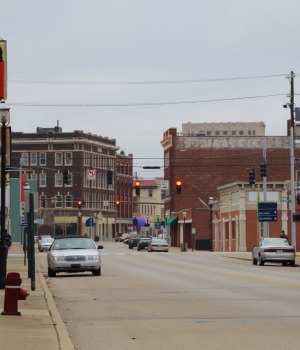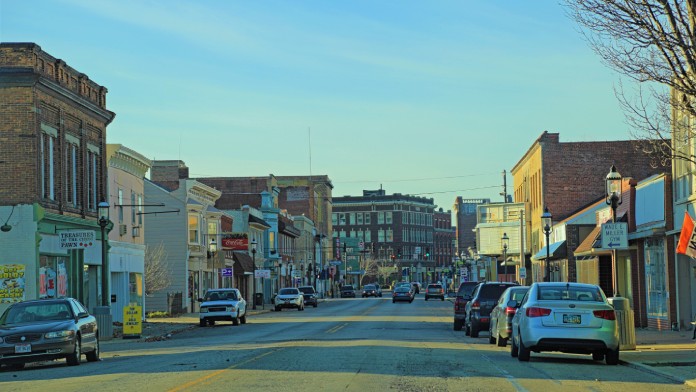Drug and Alcohol Abuse Statistics in Middletown, OH
Butler County has one of the highest overdose rates of all 88 counties in Ohio. Recent drug- and alcohol-use statistics for the area include:1, 3, 4, 5
In 2021, approximately 28% of traffic deaths in Butler County involved alcohol-impaired drivers.
As of 2018, Butler County’s drug overdose mortality rate was 75% higher than Ohio’s overall rate.
In 2021, Butler County emergency rooms treated 1,157 patients for suspected drug overdoses.
In 2021, nearly 40% of individuals treated in Butler County ERs for suspected overdoses were between the ages of 35 and 54. Roughly 27% of those treated were between the ages of 25 and 34.
Levels of Addiction Treatment
Here are the various levels of addiction treatment you’ll want to consider.
Professional Detox
Suddenly quitting drugs and alcohol often results in painful and even dangerous withdrawal symptoms. Professional detox can help manage these symptoms and keep you safe and comfortable while you go through withdrawal.
Residential Alcohol and Drug Rehab
The most structured and intensive setting, you live at the facility for a month to several months, depending on your needs. This option may be beneficial for those with a severe addiction or those who have previously dropped out of outpatient treatment.
Partial Hospitalization Programs (PHPs)
A step down from residential, PHPs involve a high frequency of care that is similar to inpatient except you return home during non-treatment hours.
Intensive Outpatient Programs (IOPs)
A step down from a PHP, IOPs involve several hours of treatment per day, for three to five days per week.
Standard Outpatient
The least intensive option, standard outpatient, involves just a few hours of treatment per week. It may only be appropriate for someone with a mild addiction, strong support system, and strong motivation to quit.
Aftercare
When you near the end of your program, you’ll collaborate with your treatment team on creating an aftercare plan that will help you stay sober even when transitioning back into your everyday life.
How to Pay for Drug and Alcohol Rehab in Ohio
There are many ways to finance the cost of drug rehab in order to get the help you need.
Private Insurance
Thanks to the Mental Health Parity and Addiction Equity Act, every insurance provider must cover substance abuse treatment to some extent. Contact your health insurance provider directly to learn more about your specific plan and its coverage.
Ohio Medicaid
Ohio Medicaid, a government program for low-income people, covers some or all of drug addiction treatment, including inpatient, outpatient, PHPs, and beyond.
Medicare
Ohio Medicare, a government program providing coverage to people 65 and older, covers alcohol and drug rehab as well as screening and assessments.
TRICARE in Ohio
Ohio TRICARE, a government program providing coverage for veterans and military personnel, covers some or all of the cost of substance abuse treatment services.
Sliding Scale Payments
Sliding scale rehabs are a great option for those looking to reduce the financial burden of rehab. They offer discounted drug rehab based on a person’s income and financial situation.
IHS-Funded Drug Rehabs
These rehabs receive funding from the Indian Health Service and in turn are able to provide no-cost addiction treatment to Native peoples.

Traveling to and Within Middletown, OH
Are you traveling away from home to enroll in an alcohol or drug rehab in Middletown? Will you be visiting the city to see a loved one who’s working through treatment? If so, here’s some local information that may help you plan your visit:
- The closest major airport to Middletown is Dayton International Airport, which sits roughly 37 miles northeast of the city. Cincinnati/Northern Kentucky International Airport is also an hour’s drive southwest of town.
- Middletown has nearly a dozen national-chain and non-branded lodging options. Short-term rentals are also available in the city.
- Some parts of Middletown are walkable. However, several of these areas have high crime rates, so using vehicle transportation may be in your best interest.
- If you need public transportation, Middletown Transit Services (MTS) operates four fixed bus routes that can take you throughout town. The city also offers evening dial-a-ride services when transit buses stop running for the day (this service is available until 11 p.m.).
- Local attractions you may want to visit include Bull’s Run Arboretum, the Canal Museum, the Shartle House Museum, the Boonshoft Museum of Discovery, the Dayton Art Institute, and the Museum of Natural History & Science.
Ohio Substance Misuse and Overdose Laws
Here are some relevant and important Ohio drug and alcohol laws:1
Ohio Addiction Discrimination Laws: Employees are able to request time off work to attend addiction treatment and employers are required to provide reasonable accommodation to them, as long as the employee’s absence won’t cause hardship for the company.
Ohio Naloxone Access Law: Anyone can purchase naloxone at a pharmacy without a prescription.
Ohio Good Samaritan Overdose Law: Much like other states, this law provides protection from drug-related prosecution for those who call 911 when someone is overdosing. Unlike other states, the person must seek screening and referral for addiction treatment within 30 days of calling 911. They also won’t get immunity if they’ve already sought immunity twice under this law.
Resources
- Centers for Disease Control and Prevention, National Center for Health Statistics. CDC Wonder Online Database. (2021). Underlying Cause of Death, 1999-2020 Results, Deaths occurring through 2020.
- Substance Abuse and Mental Health Services Administration. (n.d.). FindTreatment.gov.
- University of Wisconsin Population Health Institute. (2021). County Health Rankings & Roadmaps, Butler, OH.
- Ohio Department of Health. (2022, April 5). Preliminary Data Summary: Ohio Unintentional Drug Overdose Deaths.
- Ohio Department of Health. (n.d.). Emergency Department visits of Suspected Drug Overdose among Ohio Residents Ages 11 Years and Older.


